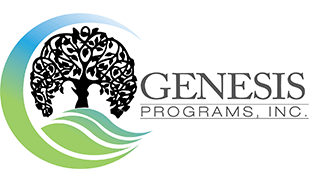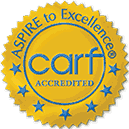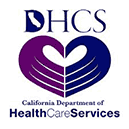The Genesis Family Program
 The Genesis Family Program is designed to give the family or significant others an understanding of the disease model of addiction; as well as introduce the family to the idea that chemical dependency is a family illness. Not only has the family been greatly affected by the behavior of the substance-abusing member, the working of the family system has a pathology about it directly related to the sickness.
The Genesis Family Program is designed to give the family or significant others an understanding of the disease model of addiction; as well as introduce the family to the idea that chemical dependency is a family illness. Not only has the family been greatly affected by the behavior of the substance-abusing member, the working of the family system has a pathology about it directly related to the sickness.
To understand the phenomenon of alcoholism or addiction occurring in a family, we must look at what a family is in itself. The family is an organism. Its parts are interdependent. The members of a family operate in a system. A system is a body of parts that works together. They may work together for peace and harmony. They may work together for destruction. They may work together for survival.
In a family where substance misuse is present, each of these individual parts is affected by the growing dysfunction of the member abusing alcohol or other drugs. Each family member adapts to the behavior of the person who is using and develops behavior that causes the least amount of personal stress. As the substance use progresses into addiction, each family member compulsively represses his or her feelings and learns to react with a survival behavior. This behavior serves to build a wall of defenses for protection from pain. This results in a state of self-delusion – detachment from true feelings that ends up affecting other relationships outside of the family system.
The need for recognition, acceptance and understanding of each member’s role in the family illness is necessary for the family recovery process. Summing up, addiction is a family disorder and is recognized by the following characteristics:
- Systemic – each person reacts to another person in the system.
- Deluded – self-deception, denial, lack of awareness of the survival role.
- Compulsive – feelings of being driven to specific behaviors.
- Individual – each family member reacts in different ways.
- Destructive – each family member pays a price to survive.
The weekly Family Program at Genesis is designed to help families reduce negative feelings while learning problem-solving techniques. We also offer help to develop a supportive and harmonious family unit. Conjoint, group, and individual sessions are provided as needed.
Some of the topics covered in our Multi-Family sessions include:
- Enabling to Codependency
- Braking Roles of the Family
- Communication Overview
- Fighting Fair
- Boundaries
- Active Listening
- The Process of Addiction
- Rebuilding Trust
Let us answer your questions. Call us now. Ventura: (805) 650-3094
When Love is Not Enough
Addiction is the most treatable disease in the world. The first and most fundamental step in the recovery process is simply to stop using whatever it is that we are using to poison ourselves. And the reality is that most of those with a substance use disorders would stop using a lot sooner if they didn’t have good, caring people trying to help!
One of the things that makes addiction difficult to treat is that everything that seems like it should help, doesn’t. No caring person likes to see a loved one suffer, and so we try to help as best we can:
- We guard our words to ensure that we don’t upset them.
- We believe them when we know they are lying.
- We take on responsibilities that seem to be “too much” for them.
- We make excuses for them.
- We convince ourselves that “It’s not that bad.”
Ultimately, we become so focused on helping our loved one to change that we lose sight of our own wants and needs. We forget to consider ourselves in the equation, mistakenly thinking that would be “selfish.”
It is important to recognize that addiction is very much a disorder of our feelings, for both the one with a substance use disorder and the loved ones. The addict begins to use substances to change the way he feels. As he builds tolerance, it takes more and more of the substance to give the same feeling until ultimately what he began using to feel good is now only making him feel bad.
These bad feelings begin to impact the way he thinks as he begins to justify and rationalize negative behavior. These are aspects of the denial system. The person with a substance use disorder also minimizes, convincing himself that “It’s not that bad,” or blames others, or simply comes up with a myriad of excuses for what he is doing. Eventually, the addict becomes delusional and unable to recognize the reality of their situation.
As his thoughts become delusional, his behavior deteriorates and he ends up doing things that he knows are wrong, that contradict his own values, and that cause him to feel guilty and ashamed. He then uses more substances to try and get relief from the guilt and shame, only perpetuating the viscious cycle.
It is critical to recognize, for both the one with a substance use disorder and the affected family member or loved one, that this is not intentional. Nobody intended for it to be this way. This is the addictive process – he is experiencing increasing loss of control, powerlessness, and un-manageability. The family member or loved one then tries to exert control and power by managing things – all in the name of “helping.”
As the loved one tries more and more to help by caring for (doing for him what he is able or should do for himself) rather than caring about (expressing concern/speaking the truth in love), it only reinforces his already established sense of low self-worth, causing him or her to think even less of themselves, and promoting increasingly more dysfunctional behavior. He takes on the role of “victim,” helpless to change. The concerned loved ones take on the role of either “rescuer” or “persecutor.”
This all gets very personal and everyone who engages in this dynamic ends up feeling frustrated, angry, and hopeless. For everyone it feels like a “lose/lose” situation. “No matter what I do ….” It generally takes professional help to escape from this dysfunctional system. It is when anyone in the family system chooses to not participate in this destructive drama that healing for all can begin. Help is waiting for you at the Family & Friends group.
Family and Friends Support Group
Family & Friends is an education and support group that is open both to family members of Genesis Program participants and also to the general public. So many people are affected by alcohol or other drug abuse and so few have anywhere to turn for help.
Our Family & Friends group is facilitated by a member of our counseling staff. It is designed to help family members and loved ones gain understanding of how the whole family system is affected by addiction and help them develop healthy coping strategies aimed at detaching themselves from the dysfunctional interactions with the substance abusers they love and freeing themselves from the bondage of worry, guilt, and fear.
Examples of topics covered include:
• Is Addiction Really a Disease?
• Dysfunctional Family Roles
• Helping vs. Enabling
• Setting and Maintaining Boundaries
• Codependent Relapse Prevention
• Conflict Resolution
• Can I ever Trust Again?
• Effective Communication Tools
Call Now for a Free Assessment: (805) 650-3094
Call now for your free assessment!
(805) 650-3094
Genesis Programs, Inc. is CARF accredited and certified through the Department of Healthcare Services (DHCS) as outpatient providers for substance Use Disorder rehabilitation treatment services. Certification #560032DP Exp. 11/30/2023


